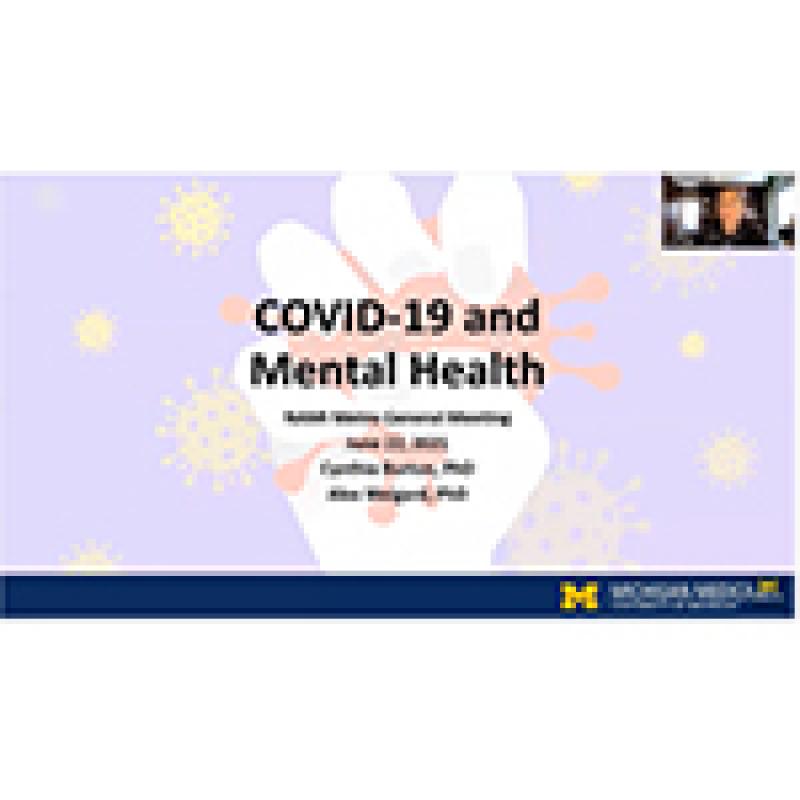Biography
Alexander Weigard is Assistant Professor at the University of Michigan Addiction Center in the Department of Psychiatry. He is interested in using computational and network modeling methods to better characterize cognitive and neural risk factors for the development of attention problems and substance use disorders. He hopes to integrate this work with machine learning to enhance the real-world prediction of problematic substance use, psychopathology and associated outcomes.
Dr. Weigard is the principal investigator (PI) of a newly funded K23 grant from the National Institute of Drug Abuse: Leveraging computational models of neurocognition to improve predictions about individual youths' risk for substance use disorders. This project aims to take a crucial step towards the development of advanced computational neuroscience methods that may ultimately inform substance use disorder (SUD) prevention efforts by identifying reliable predictors of individuals’ SUD risk. Although extant research in developmental neurosciences identified multiple early risk factors that are associated with the development of SUD at the group level, there is currently a dearth of large scale, replicable research in which neurocognitive data are used to make reliable and generalizable predictions of SUD outcomes for individual youth. This project will combine Dr. Weigard’s expertise in computational models of cognition with new training in predictive informatics methods to assess whether two advanced analytic approaches, a) sequential sampling models (SSMs) of cognition, and b) network neuroscience, can be used to extract features from longitudinal neurocognitive data that enhance the prediction of youths’ SUD outcomes. This project will involve extensive analyses with two large data sets, the Michigan Longitudinal Study and the Adolescent Brain Cognitive Development Study, as well as collection of a new sample for cross-validation of the predictive features identified in the larger studies."
Areas of Interest
- Computational Psychiatry
- Developmental Cognitive Neuroscience
- Clinical Applications of Cognitive Modeling
- Network Analyses
- Substance Use Disorders
- Attention Problems / ADHD
Featured News

Study shows men, women share similar emotional highs and lows
Contrary to widely held gender stereotypes, women are not more emotional than men, researchers say.

The COVID Pandemic: Mental Health and Substance Use
This recorded webinar was part of our Psychiatry Community Talks series

Dr. Martz & colleagues published research findings on subtypes of brain functioning as they relate to substance use behavior
New research article published in Cognitive, Affective, & Behavioral Neuroscience
Credentials
- University of Michigan, Addiction Center, Department of Psychiatry - T-32 Post Doctoral Research Fellow
- Penn State University, Ph.D. - Clinical Psychology, Specialization in Cognitive and Affective Neuroscience
- Penn State University, M.S. - Psychology
- Temple University, B.A. - Psychology, Minor in Cognitive Neuroscience
Published Articles or Reviews
View Dr. Weigard's Google Scholar Profile
Select Publications
Weigard, A., Soules, M., Ferris, B., Zucker, R. A., Sripada, C., & Heitzeg, M. (2020). Cognitive modeling informs interpretation of go/no-go task-related neural activations and their links to externalizing psychopathology. Biological Psychiatry: Cognitive Neuroscience and Neuroimaging, 5(5), 530-541.
Weigard, A., Hardee, J. E., Zucker, R. A., Heitzeg, M. M., & Beltz, A. M. (2020). The role of pubertal timing in the link between family history of alcohol use disorder and late adolescent substance use. Drug & Alcohol Dependence, 107955.
Weigard, A., Sathian, K., & Hampstead, B. M. (2020). Model-based assessment and neural correlates of spatial memory deficits in mild cognitive impairment. Neuropsychologia, 136, 107251.
Weigard, A., Heathcote, A., & Sripada, C. (2019). Modeling the effects of methylphenidate on interference and evidence accumulation processes using the conflict linear ballistic accumulator. Psychopharmacology, 236(8), 2501-2512.
Weigard, A., Heathcote, A., Matzke, D., & Huang-Pollock, C. (2019). Cognitive modeling suggests that attentional failures drive longer stop-signal reaction time estimates in attention deficit/hyperactivity disorder. Clinical Psychological Science, 7(4), 856-872.
Sripada, C., Rutherford, S., Angstadt, M., Thompson, W. K., Luciana, M., Weigard, A., Hyde, L., & Heitzeg, M. (2019). Prediction of neurocognition in youth from resting state fMRI. Molecular Psychiatry, 1-9.




